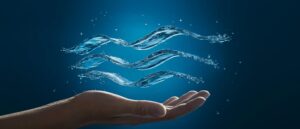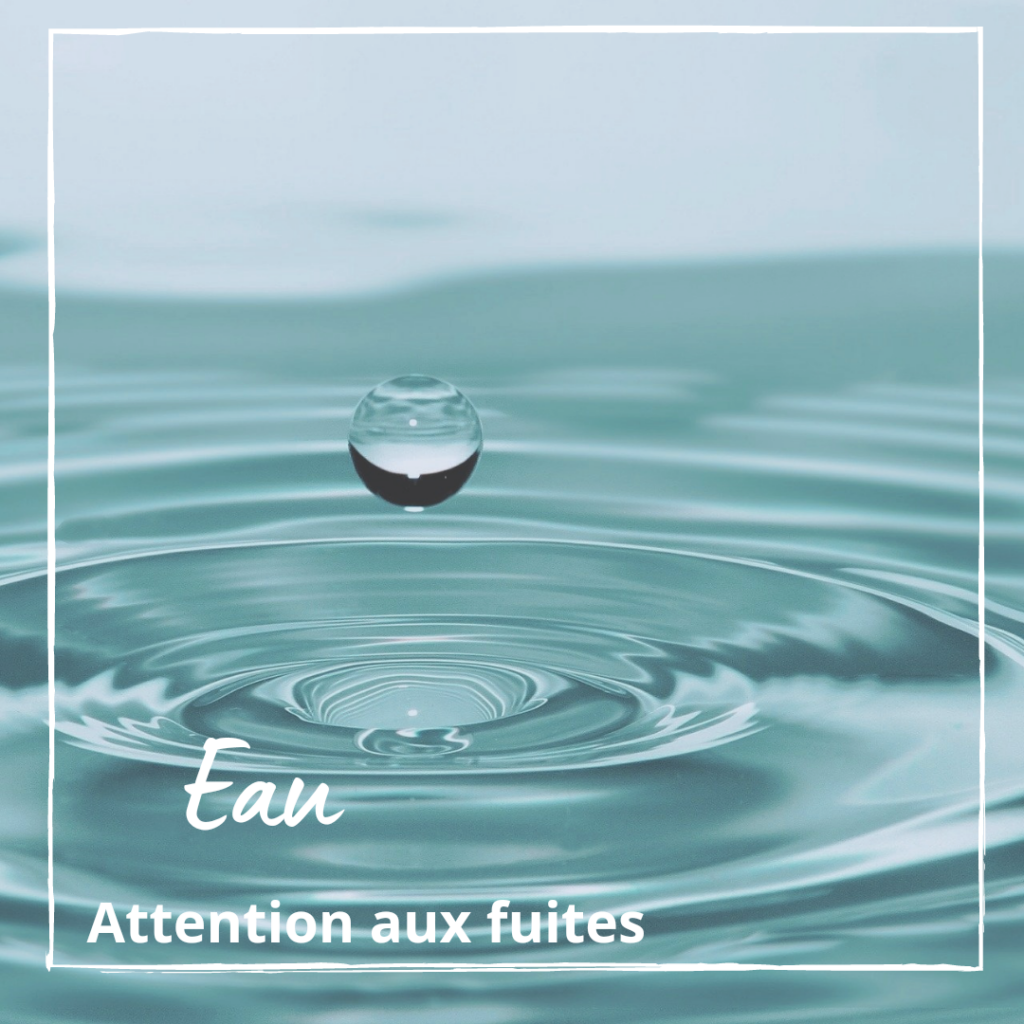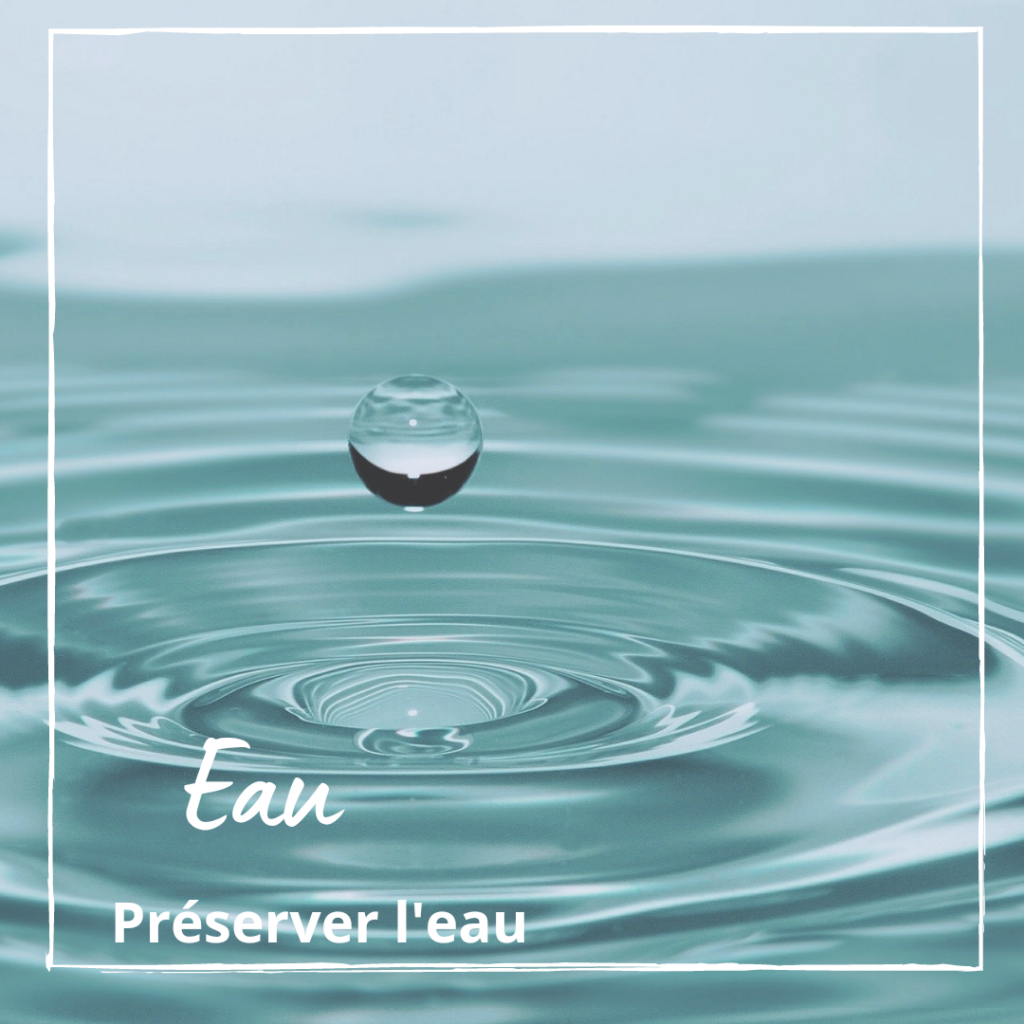
Water
Sacred paradox of water. Massively present on Earth, only a very small part of the water (2.8% fresh water) can be used directly.
But it is the overall volume that is directly threatened by climate change. While some regions it could venir à manquer, for others the rainfall regime will intensify leading to a increased risk of flooding. Added to this are industrial and agricultural uses that are not water efficient enough.
After all, water is one of the most basic human needs. It has therefore become more than urgent to act collectively but also individually to avoid any waste as much as possible.

Watch out for leaks
Turn off the water between uses, do not let a tap drip, and regularly check for water leaks. Never let the water run unnecessarily.
Tips To try to detect them, it is recommended to carefully monitor the bills and read the meter every month.
For floods, you can opt for detectors connected to your smartphone to be placed on the ground.
Quickly repairing a small water leak can avoid enormous waste: a slight leak can represent a loss of 35,000 liters of water per year!
A leaky toilet flush = several tens of m³ per year or even more than a hundred.
A dripping tap = 30 to 50 m³ per year of waste

Conserve water
Collect drinking water from taps before use (often before the water reaches the desired temperature for the shower, dishes, etc.) and/or rainwater
Tip : rainwater is only very slightly polluted and can be used for many purposes such as the garden, but also for the car, washing the floors, supplying the flush or a washing machine.
Currently the average drinking water consumption of a French person is approximately 148 liters per inhabitant per day (source: ONEMA).
Water can easily be saved inside the dwelling by adding reducers to the taps and by using rainwater; we can cut the bill in half. Learn more about the distribution of posts water consumers.
Source : ADEME, Agence de la Transition écologique
